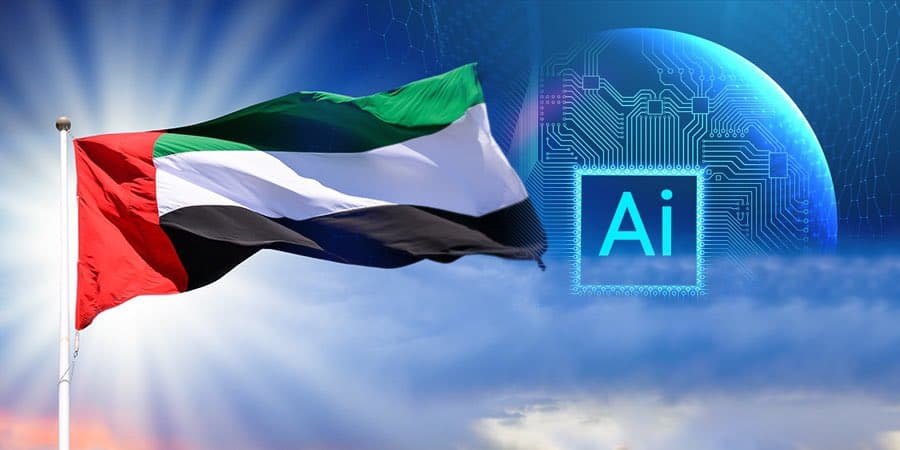UAE AI Strategy 2031 is a comprehensive national initiative aimed at positioning the United Arab Emirates as a global leader in artificial intelligence (AI) by the year 2031. This strategy seeks to harness the power of data and AI technologies to drive economic growth, enhance government services, and improve the quality of life for citizens. In this article, we will delve into the key components of the UAE’s AI strategy and explore how it plans to turn data into global dominance.
UAE AI Strategy 2031: Vision and Objectives
The UAE’s AI Strategy 2031 is aligned with the broader UAE Centennial 2071 vision, which aims to make the UAE the best country in the world by its 100th anniversary. The AI strategy focuses on several key objectives:
- Economic Growth: Leveraging AI to diversify the economy and reduce dependence on oil revenues.
- Government Efficiency: Implementing AI solutions to enhance the efficiency and effectiveness of government services.
- Quality of Life: Utilizing AI to improve healthcare, education, and other public services, thereby enhancing the quality of life for citizens.
- Global Leadership: Establishing the UAE as a global hub for AI research, development, and innovation.
Strategic Pillars
The UAE’s AI Strategy 2031 is built upon four strategic pillars:

1. AI in Government
The UAE aims to integrate AI into all government services, making them more efficient and user-friendly. This includes automating routine tasks, improving decision-making processes, and providing personalized services to citizens.
2. AI in Industry
The strategy focuses on promoting the adoption of AI technologies across various industries, including healthcare, transportation, energy, and manufacturing. This will help increase productivity, reduce costs, and drive innovation in these sectors.

3. AI Talent and Research
Developing a skilled workforce in AI is crucial for the success of the strategy. The UAE plans to invest in education and training programs to build a pool of AI experts. Additionally, the country aims to attract top AI researchers and institutions to collaborate on cutting-edge projects.
4. AI Infrastructure
Building the necessary infrastructure to support AI initiatives is essential. The UAE plans to invest in data centers, cloud computing platforms, and other technological infrastructure to facilitate the deployment of AI solutions.
Key Initiatives
Several initiatives have been launched to support the implementation of the UAE’s AI Strategy 2031:
- Mohammed bin Zayed University of Artificial Intelligence (MBZUAI): Established as the world’s first graduate-level, research-based AI university, MBZUAI aims to develop AI talent and conduct advanced research in the field.
- AI Lab: A national platform for AI research and development, the AI Lab brings together researchers, developers, and entrepreneurs to collaborate on AI projects.
- AI Data Centers: The UAE is investing in state-of-the-art data centers to store and process the vast amounts of data required for AI applications.
- AI Regulations: The government is developing policies and regulations to ensure the ethical and responsible use of AI technologies.

Economic Impact
The UAE’s AI Strategy 2031 is expected to have a significant impact on the country’s economy. By 2031, AI is projected to contribute 20% of the UAE’s non-oil GDP, amounting to approximately AED 335 billion. This growth will be driven by increased productivity, the creation of new industries, and the development of AI-driven products and services.
Global Partnerships
To achieve its AI objectives, the UAE is forming strategic partnerships with leading global technology companies and research institutions. These collaborations will provide access to advanced AI technologies, expertise, and resources. Notable partnerships include:
- G42 and Microsoft: In April 2024, Microsoft announced a $1.5 billion investment in UAE-based AI firm G42, securing a minority stake and a seat on the company’s board. This collaboration aims to enhance AI and digital infrastructure in the Middle East, Central Asia, and Africa.
- OpenAI and G42: OpenAI is partnering with G42 to construct a massive 1-gigawatt AI data center in Abu Dhabi, marking OpenAI’s first major international infrastructure project.
Challenges and Considerations
While the UAE’s AI Strategy 2031 presents numerous opportunities, it also faces several challenges:
- Data Privacy and Security: Ensuring the protection of personal data and maintaining cybersecurity are critical concerns in the implementation of AI technologies.
- Ethical AI: Developing AI systems that are fair, transparent, and accountable is essential to prevent biases and ensure public trust.
- Talent Acquisition: Attracting and retaining skilled AI professionals is a competitive challenge, as demand for AI expertise grows globally.
Conclusion
The UAE AI Strategy 2031 is an ambitious plan to transform the country into a global leader in artificial intelligence. By focusing on government efficiency, industrial innovation, talent development, and infrastructure investment, the UAE aims to harness the power of data and AI to drive economic growth and improve the quality of life for its citizens. Through strategic partnerships and a commitment to ethical AI practices, the UAE is well-positioned to achieve its vision of turning data into global dominance.
Do follow UAE Stories on Instagram
Read Next – ADNOC Gas to Join FTSE Emerging Index on 22 September 2025














